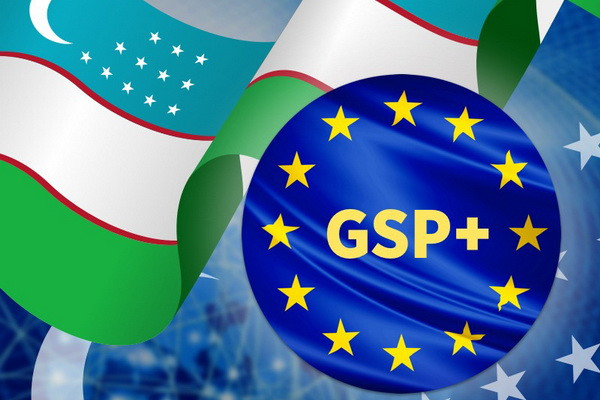
GSP+ monitoring mission visited Uzbekistan
Tashkent, Uzbekistan (UzDaily.com) -- A team of senior European Union officials conducted a monitoring visit in Uzbekistan from 24 to 31 March 2022 to review Uzbekistan’s progress in implementing the 27 international conventions applicable under the Special Incentive Arrangement for Sustainable Development and Good Governance under the EU Generalised Scheme of Preferences (GSP+).
These conventions cover human and labour rights, environment and climate, as well as good governance, including corruption. When joining the GSP+ arrangement, Uzbekistan committed to their full implementation. This mission was the first monitoring exercise since Uzbekistan was granted GSP+ on 10 April 2021.
Over the course of the week, the officials from DG Trade, DG Employment, Social Affairs and Inclusion and the European External Action Service held wide-ranging meetings with representatives of the government, civil society representatives including Human Rights Defenders and environmental NGOs, as well as with the Federation of Trade Unions, businesses, the confederation of employers’ association, the National Chamber of Commerce, and the Ombudsperson. They had exchanges with UN agencies, international partners and EU Member States Ambassadors. Officials visited the Ferghana Valley to meet local businesses, civil society representatives, and authorities, with a special focus on the cotton and textile sector and the rights of women.
The GSP+ monitoring mission was held back to back with the annual structural meeting of the EU - Uzbekistan Sub-Committee on Justice, Home Affairs, Human Rights and Related Issues, on 29 March 2022.
The monitoring mission addressed issues affecting human rights and the rule of law, labour rights and the environment. There was a significant focus on civil society space, freedom of association, freedom of expression, the independence of the judiciary, fight against corruption, domestic violence and the draft NGO, the Trade Union law and the Labour and Criminal Codes. Particular issues raised included registration of NGOs and Trade Unions and anti-discrimination. Among the positive steps, the officials welcomed the significant progress made in the elimination of forced and child labour in the cotton harvest.
EU Ambassador Charlotte Adriaen said, “The effective implementation of international commitments forms the basis of Uzbekistan’s privileged access to the EU market. This first monitoring mission confirmed Uzbekistan’s commitment in this regard and was the opportunity to discuss in-depth the issues of concern. The monitoring and engagement with the Government of Uzbekistan will be the subject of a report to the European Parliament and the Council of Ministers later this year.”
The EU’s GSP+ scheme is a unilateral trade tool that removes import duties from products coming into the EU from lower middle-income countries, supporting sustainable development.